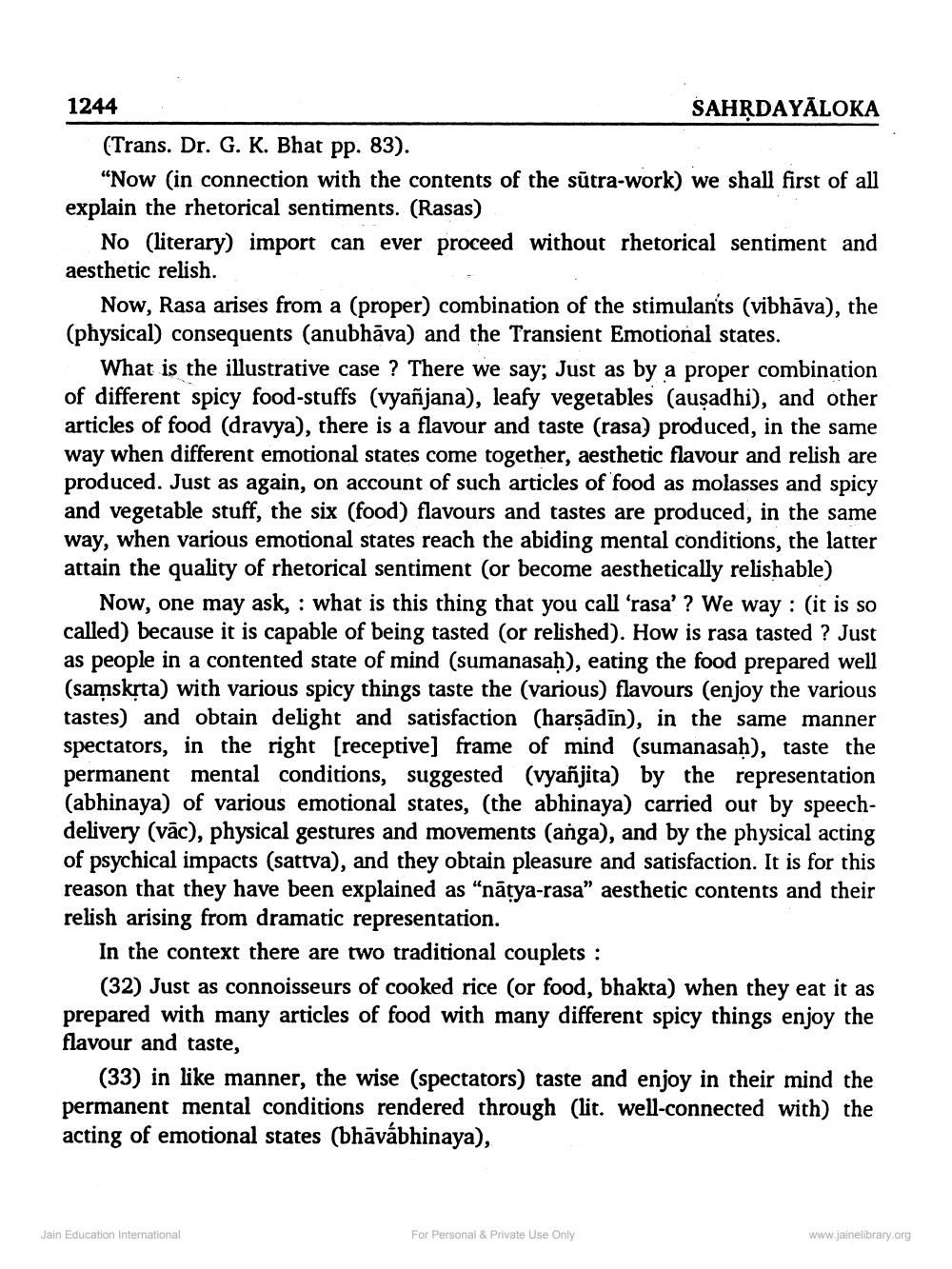________________
1244
SAHRDAYĀLOKA (Trans. Dr. G. K. Bhat pp. 83).
“Now (in connection with the contents of the sūtra-work) we shall first of all explain the rhetorical sentiments. (Rasas)
No (literary) import can ever proceed without rhetorical sentiment and aesthetic relish
Now, Rasa arises from a (proper) combination of the stimulants (vibhāva), the (physical) consequents (anubhāva) and the Transient Emotional states.
What is the illustrative case ? There we say; Just as by a proper combination of different spicy food-stuffs (vyañjana), leafy vegetables (ausadhi), and other articles of food (dravya), there is a flavour and taste (rasa) produced, in the same way when different emotional states come together, aesthetic flavour and relish are produced. Just as again, on account of such articles of food as molasses and spicy and vegetable stuff, the six (food) flavours and tastes are produced, in the same way, when various emotional states reach the abiding mental conditions, the latter attain the quality of rhetorical sentiment (or become aesthetically relishable)
Now, one may ask, : what is this thing that you call 'rasa' ? We way : (it is so called) because it is capable of being tasted (or relished). How is rasa tasted ? Just as people in a contented state of mind (sumanasah), eating the food prepared well (samskrta) with various spicy things taste the (various) flavours (enjoy the various tastes) and obtain delight and satisfaction (harşādīn), in the same manner spectators, in the right (receptive] frame of mind (sumanasah), taste the permanent mental conditions, suggested (vyañjita) by the representation (abhinaya) of various emotional states, (the abhinaya) carried out by speechdelivery (vāc), physical gestures and movements (anga), and by the physical acting of psychical impacts (sattva), and they obtain pleasure and satisfaction. It is for this reason that they have been explained as “nātya-rasa" aesthetic contents and their relish arising from dramatic representation.
In the context there are two traditional couplets :
(32) Just as connoisseurs of cooked rice (or food, bhakta) when they eat it as prepared with many articles of food with many different spicy things enjoy the flavour and taste,
(33) in like manner, the wise (spectators) taste and enjoy in their mind the permanent mental conditions rendered through (lit. well-connected with) the acting of emotional states (bhāvábhinaya),
Jain Education International
For Personal & Private Use Only
www.jainelibrary.org




